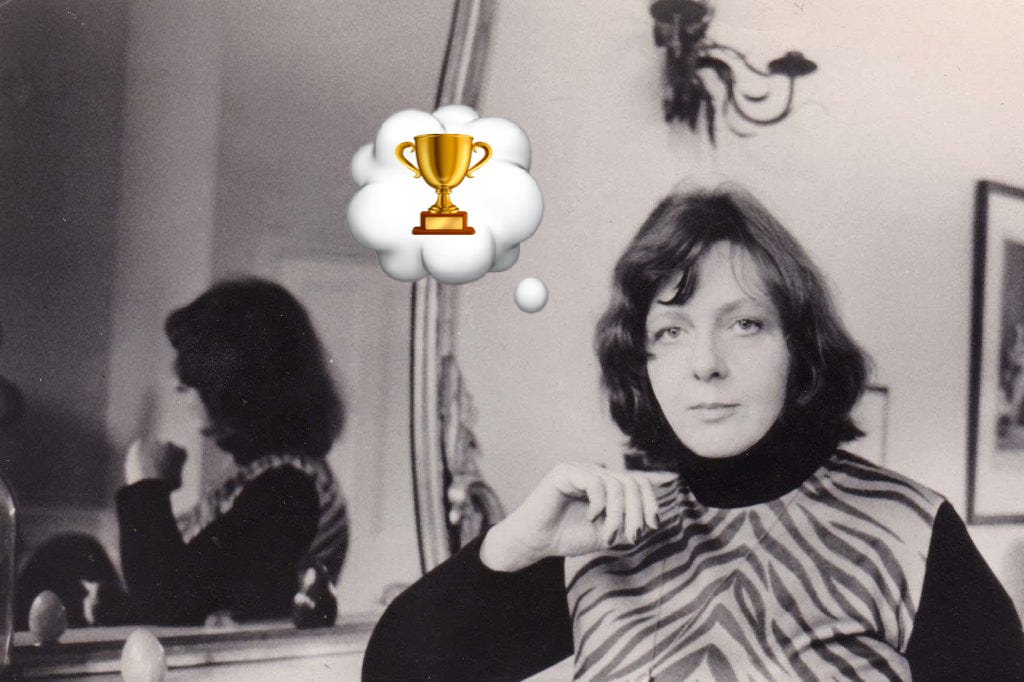“Some books are undeservedly forgotten,” W.H. Auden wrote. “None are undeservedly remembered.”
Brigid Brophy (1929-1995) disagreed. And in her 1967 book Fifty Works of English and American Literature We Could Do Without, the Irish critic, playwright, socialist, atheist, vegetarian, activist, and wit named names.
Beowulf? “Admiring comment on its poetry is about as relevant as praise for the architecture of Stonehenge.”
Moby Dick “is a monument to Melville’s inability to get down to telling his story at all.”
Whitman’s a “banal and sententious old fraud,” Twain serves up “canned huckleberries in the unnatural juice of homely humour” and Faulkner’s “a vain and humourless purveyor of turgid Southern tosh.” Oh, and “now that we’ve got rid of the rest of the Empire, couldn’t we please ditch Kipling too?”
Brophy and her two co-authors were clear about their aims: Literature is “choked with the implied obligation to like dull books,” they argue, and “to perpetuate the received opinions about English literature is to force our children into philistinism, even when philistinism is against their natural bent.” (Kudos for the snooty implication that most if not all kids are brutes.)
And so as a bracing chaser to last week’s case for kind wit, here is the argument for being cutting: “The mind too weak to perceive in what respects the bad fails is not strong enough to appreciate in what the good succeeds.”
But as fate would have it, the woman who listed books we could do without has been mostly forgotten while Beowulf and the rest of the pack howl on.
Why? “Her reputation probably suffered from the very breadth of her activities, and from a long final illness that ended her literary productivity without providing the promotional possibilities of death,” Peter Stothard wryly noted in the introduction to one of her reissued novels.
Brigid Brophy’s life and work were a series of elaborate literary jokes, many of which didn’t land. She wrote a children’s book called the Pussyowl, imagining the offspring of Edward Lear’s Owl and the Pussycat, and an inversion of Shaw’s most memorable title called The Adventures of God in His Search for the Black Girl. She gave her sometimes lover Iris Murdoch one of her novels but changed the cover text from Flesh: A Novel by Brigid Brophy to Flash: A Navel by Brigitte Bardot. And she advanced the wonderful theory that Ambrose Bierce, the coruscating epigrammer behind The Devil’s Dictionary, lived a second life as the Argentine magic realist Jorge Luis Borges.
But the real reason Brigid Brophy’s wit was forgotten and shouldn’t be is that she put it to good use advocating for her fellow writers. She put down her pen in the 1970s, giving up some of her prime writing years to lead the campaign for the Public Lending Right. This program (since it’s British, we can happily call it a scheme) directly compensates authors based on how often their works are checked out of public libraries on the premise that a book borrowed is a book not bought.
The fact that she was “briefly known in London literary circles as the brainiest woman in Britain” and had famously declared a whole tranche of classics to be overrated only made her a more effective advocate. “One man’s tripe is another man’s vital social service,” she advised proponents to argue. “In contradiction of the rumor that we are a philistine country, Britons read books at the rate of at least 11 per year per head (babies and other illiterates’ heads included).”
If with her words she argued to cast aside a few dozen books, with her actions she helped bring hundreds more on the shelves. Since its establishment in 1979, the UK’s PLR has paid out more than £150M.
Today, 35 countries around the world have a Public Lending Right program, including my own. I’m pleased to be among the 18,139 Canadian authors to have received a modest cheque in the mail this week, which is why this newsletter is on the house. Send it to your friends! Splash it around! It’s on me!
Quick quips; lightning
“I never forget a face — but I’m going to make an exception in your case.”
— Groucho Marx
“I found nothing really wrong with this autobiography except poor choice of subject.”
— Clifton Fadiman, regarding Gertrude Stein’s Everybody’s Autobiography.
“It makes me feel masculine to tell you I don’t answer questions like this without being paid for answering them.”
— Lillian Hellman, upon being asked by Harper’s Magazine in which situations she felt most masculine.
Speaking of...
Witty activists
Irish vegetarians
GWQ No. 140 is like caviar for the general, to use an excellent phrase that literary scholar Terry Castle used to describe Brophy’s novels in this engaging LRB podcast from whence the novel/navel anecdote was gleaned. I learned about Brophy while researching Patricia Highsmith, as Castle is if not the leading authority on twentieth-century lesbian writers then certainly the funniest; she described Brophy here as “all-in-one bundling of taste and wit and authority and hilarious bloody-mindedness.” Long-time readers will recognize the headline pun as Sarah Murdoch’s dad joke. Could we have done without Elements of Wit: Mastering The Art of Being Interesting? Nah! The promotional possibilities of death await us all. Lend the ❤️ a tap!






No great insight or ‘value’ to add with this comment other than to say I greatly enjoyed this as always and the title of it might be your greatest so far. So kudos!